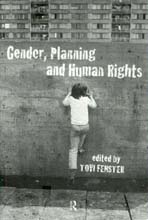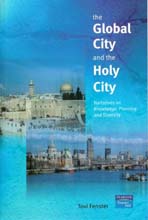

- T. Fenster "Participation in the Settlement Planning Process - the Case of the Bedouin in the Israeli Negev", Progress in Planning, 1993, London, Pergamon Press, Vol. 39 (3) pp.167-242
- T. Fenster (Ed.) (1999) Gender, Planning and Human Rights, Routledge, London
- T. Fenster (2004) The Global City and the Holy City – Narratives of Knowledge, Diversity and Planning, London, Pearson
- T. Fenster (2006) Between Two Cities: Everyday Life in the Global and the Holy City, Hakibbutz Hameuhad and Van Leer Institute, Jerusalem (in Hebrew)

